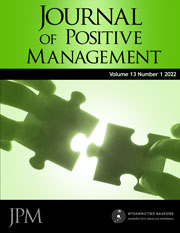The Effects Of Covid-19 On The Performance Of National Teachers' Colleges In Uganda
DOI:
https://doi.org/10.12775/JPM.2022.002Abstract
Purpose: This study attempted to investigate the effects of COVID-19 on the performance of National Teachers’ Colleges (NTCs) supported by Enabel.
Methodology/approach: The study adopted a cross sectional research design. The study population consisted of staff working in the NTCs purposely or randomly selected. The self-administered questionnaire was used to collect the data that was analysed using both descriptive and inferential analysis.
Findings: The research findings showed that programmes disruptions (r = 0.496); funding disruptions (r = .403) and capacity gap (r = .556) are moderately significant and positively associated with NTC performance respectively. Overall, the variables studied explain 33.9 percent of the variation in the organizational performance of NTCs.
Implications/limitations: The research findings have shown that whereas programme disruptions and capacity gaps significantly contributed to the explanation of performance in NTCs during the lockdown, funding disruptions do not. The study recommends the continued adoption of innovative approaches to realize the objective of quality teacher training and education. Research into the effects of Covid-19 on the students in NTC is recommended, as this current study did not explore the component of students.
Originality/value: While the effects of Covid-19 on the education sector have been studied, this has been mainly done at the primary and secondary levels of education in Uganda. This paper has attempted to investigate Covid-19 effects on NTCs supported by Enabel.
Keywords: Covid-19; programme disruptions; funding disruptions; capacity gaps; organizational performance
Paper type: Research paper
Downloads
Published
How to Cite
Issue
Section
License
Copyright (c) 2023 James Kizza

This work is licensed under a Creative Commons Attribution-NoDerivatives 4.0 International License.
Copyright
Articles submitted to the journal should not have been published before in their current or substantially similar form, or be under consideration for publication with another journal. Authors submitting articles for publication warrant that the work is not an infringement of any existing copyright and will indemnify the publisher against any breach of such warranty. For ease of dissemination and to ensure proper policing of use, papers and contributions become the legal copyright of the publisher unless otherwise agreed.
Plagiarism and ghostwriting
In response to the issue of plagiarism and ghostwriting the editors of the Journal of Positive Management has introduced the following rules to counteract these phenomena:
1. Contributors should be aware of their responsibility for a content of manuscripts.
2. Collective authors are obliged to reveal the contribution and an affiliation of each author (i.e. who is an author of specified part of a paper).
3. Any act of dishonesty will be denounced, the editors will inform appropriate institutions about the situation and give evidence of all cases of misconduct and unethical behaviour.
4. The editors may ask contributors for financial disclosure (i.e. contribution of specified institutions).
Stats
Number of views and downloads: 645
Number of citations: 0



